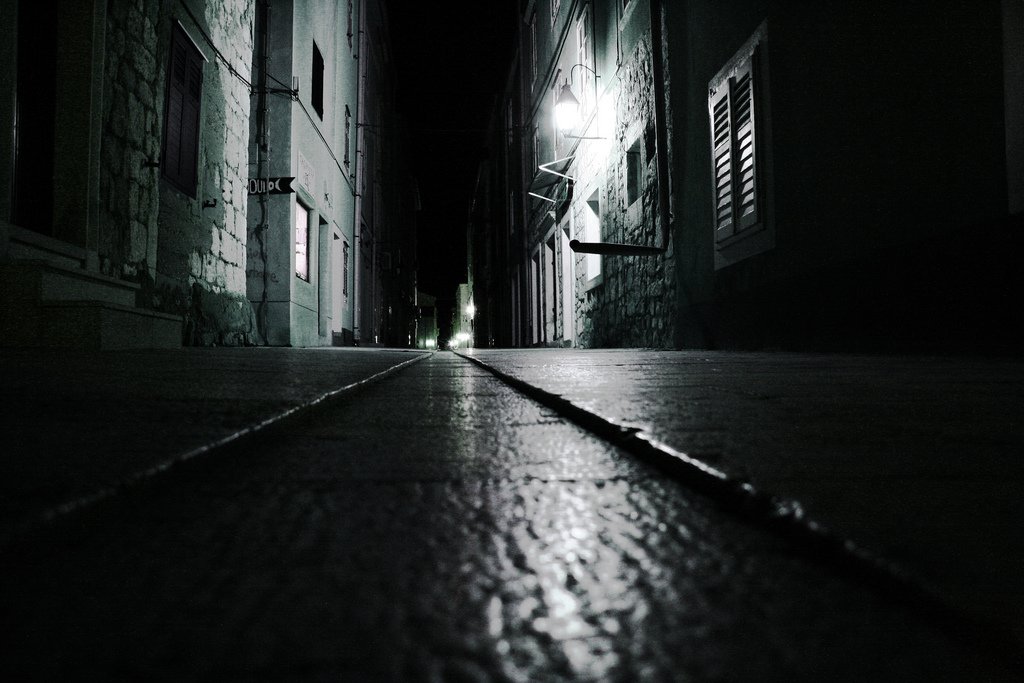A spate of random attacks against women in Melbourne has again raised concerns about safety in the city. But crime experts suggest the apparent spike could be the result of intense media coverage.
In a string of attacks four female joggers, all aged between 20 and 30, were grabbed from behind and indecently assaulted in the Newport and Yarraville areas this month. The women were all running in the early hours of the morning with earphones in and police report their screams scared off their attacker.
Last weekend, two women were attacked in Brunswick’s Sydney Road, echoing the tragic abduction and murder of Jill Meagher in 2012.
And just two weeks ago, 19-year-old Jesslyn Wang was targeted inside the Melbourne CBD’s QV Shopping Centre while waiting for a friend.
“I was so scared at that time. [A man] was trying to touch me,” Wang told Catalyst.
Dr Danny Sullivan, forensic psychiatrist at the Victorian Institute of Forensic Mental Health, says there are particular times of the year in which random assaults occur more frequently.
“What we do know about these more frequent attacks is that they occur more during summer hours, when the weather is better and the hours longer,” he says.
“The trend over time is a gradual increase but not a significant spike.”
But Dr Sullivan says media coverage also plays a role in what can appear to be an increase in crime. RMIT University criminology expert Dr Anastasia Powell also warns people not to be caught up in the hype of particular incidents.
“It is important to distinguish between increased media coverage of particular incidents, and increases in crime trends more generally,” she says.
“In fact, when we look at reported crime data, we’ve been experiencing a downward trend. It may be an increase in reporting and police action being taken, but it is difficult to know whether it is an increase in overall prevalence of this form of violence.”
Figures from the Australian Bureau of Statistics reveal males were more likely than females to be victims of physical assault, with a victimisation rate of 3.4% compared to 2.4% for females. Persons aged 15–19 were most likely to be victims of physical assault (6%) followed by persons aged 20–24 (5.5%).
“Paradoxically, people’s fear of crime rarely matches the reality of where they are at greatest risk,” says Dr Powell.
“For instance, while women are often fearful of violent victimisation when staying out late, it is in fact young men who are at more risk of violent victimisation – usually at the hands of an unknown male.”
Detective Acting Inspector Tom Nairn from the Victorian Police Sexual Crime Squad says although the attacks seem to be more prevalent on women than men, he doesn’t think there is a sudden increase in the crime trend.
“I think what we’re seeing here is a spate at the moment because there are lots of other periods of the year where these sort of things [may happen] but don’t get reported,” he says.
“People shouldn’t be afraid of going out. Overall, we live in a particularly safe community. The best thing to do to look after yourself is not to avoid going out but being aware of your surroundings and what is happening around you.”
Dr Powell says there are two very important points to always remember in regards to sexual assault. It is never the victim’s fault. And the most important step needed to prevent rape and sexual assault is to prevent people from committing the crimes. But she also points both young men and women to websites with advice on how to be cautious when going out.
“If women are looking for advice on going out and staying safe there are some great tips at http://www.wikihow.com/Prevent-a-Potential-Rape. If men are concerned about night time violence, there’s some good advice at http://wingman.org.au/the-moves. The take-home message? Be a good friend and keep your mates out of trouble,” she said.
Do you feel unsafe in the city? Have you ever had anyone approach you? Comment below.
By Ellijahna Victoria
@EllijahnaVic
If you’ve experienced any sexual behaviour that made you feel uncomfortable, frightened or threatened, you can seek advice and support from CASA House on 9635 3610 or online at http://www.casahouse.com.au/
If you or someone around you is in immediate danger call the Police on 000.
Picture via Flickr


